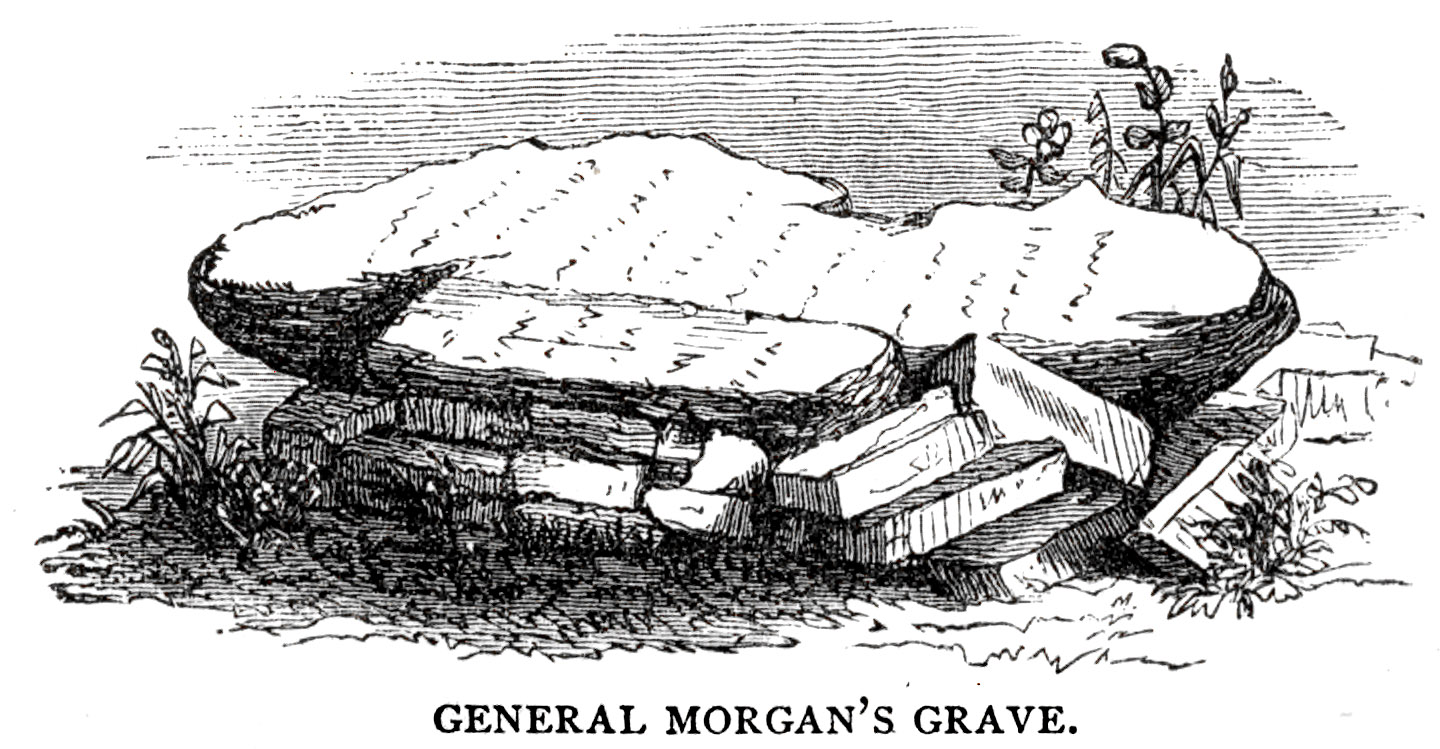The Grave of Daniel Morgan
by Benson J. Lossing

In stately mausoleum or costly urn, the Old Greek and Roman preserved the ashes of his noble dead, and honored each public benefactor with a portrait in during material. Hitherto, the American, for obvious reasons, has been slow to erect costly cenotaphs in memory of his patriotic countrymen, and very few of the heroes of the classic period in the history of his country — the period of the old war for independence — have yet been honored with a statue. Wealth and good taste are now producing a rapid change. The American has become rich, and is disposed to erect costly monuments to the memory of the illustrious dead of his country. His taste has been cultivated, and he now prefers to make that contribution of his gratitude in the form of a statue rather than in a heap of stones. If he shall turn back and see who among his countrymen most illustrious, because of noble deeds, have remained so neglected that neither a monument nor a statue has ever been erected in memory of him, he will find that the remains of Daniel Morgan the “Thunderbolt” of the revolutionary struggle, have reposed for seventy years beneath a plain horizontal slab, raised a few feet above the ground upon a foundation of brick, with this simple inscription upon it:
Major General Daniel Morgan, departed this life On July the 6th, 1802, In the 67th year of his age. Patriotism and valor were the prominent features of his character, and the honorable service he rendered to his country during the Revolutionary war, crowned him with Glory, and will remain in the Hearts of his Countrymen A Perpetual Monument to his Memory.
When in the autumn of 1866, the writer visited and sketched General Morgan's grave in the southwestern part of the old Presbyterian churchyard on the corner of Piccadilly street, in Winchester, Virginia, close by the public cemetery, the slab was broken, and its foundation was partly cast down as seen in the engraving. It was a sad spectacle of the neglect of one who did so much for the achievement of our national independence.
The history of Morgan's life is identified with that of Arnold's marvellous winter march across the wilderness of Maine and Lower Canada; the siege of Quebec; the capture of Burgoyne at Saratoga; and the stirring scenes in the campaigns in the Carolinas, where, at the battle of the Cowpens, he won such renown that he was publicly thanked by Congress, and presented with a gold medal.
Either his native State New Jersey, or his adopted State Virginia, ought to erect a statue of him in a conspicuous place somewhere; and the citizens of Winchester would do well to see that the grave of this illustrious man within their city limits, no longer remains neglected.